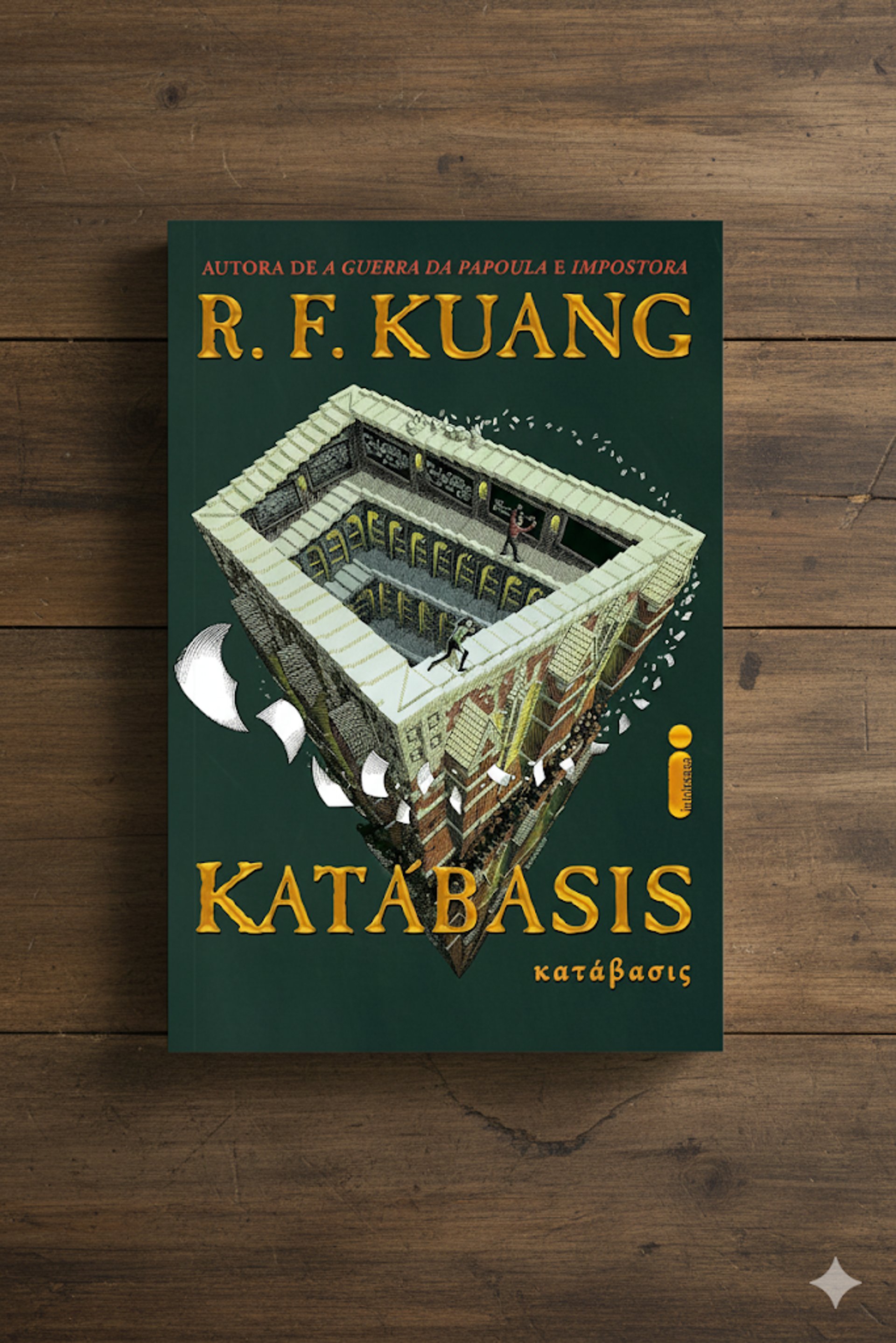
Katabasis - R.F. Kuang: A Brutal Descent
A deep-dive review of "Katabasis" by R.F. Kuang, the author of Babel and The Poppy War. Explore the themes of power, history, and moral decay in this dark academia fantasy.
Book Review of a Scholar's Hell
After the staggering successes of "Babel" and "The Poppy War," R.F. Kuang has built a reputation for writing brilliant, brutal, and unflinchingly critical novels. In what might be her darkest work yet, "Katabasis," Kuang turns her sharp intellect to the very foundations of knowledge and ambition, crafting a story that is both a dark academia thriller and a haunting mythological descent.
This review will explore the core themes of "Katabasis," analyze Kuang's signature style, and help you decide if you're prepared for this punishing journey into the underworld of scholarship.
What is Kuang's "Katabasis"? The Scholar's Descent
In Greek myth, a "katabasis" is a journey to the underworld. While other authors might use this as a simple fantasy quest, R.F. Kuang weaponizes the concept.
Her "underworld" isn't a literal land of the dead. It is a hidden archive, a forgotten history, a forbidden school of thought buried deep beneath the hallowed halls of a university like Oxford or Yale. The descent is the intellectual and moral price a scholar pays to access it. Kuang’s story follows a brilliant but ostracized protagonist who uncovers a source of forgotten magic tied to suppressed languages and histories. To gain power, they must descend through layers of academic lies, colonial theft, and personal trauma, sacrificing pieces of their humanity at every step.
Analysis of Key Themes in Katabasis
Kuang masterfully weaves her signature themes into this dark narrative:
The Violence of Academia: Like in "Babel," the university is not an ivory tower but a battlefield. Knowledge is a weapon, translation is an act of conquest, and the pursuit of truth requires a blood sacrifice. The book viciously critiques how institutions hoard and sanitize history.
The Price of Power: The protagonist's journey is a grim exploration of ambition. The forbidden knowledge they seek offers immense power—the ability to rewrite reality—but it comes at a terrible cost. The central question is not if they will become a monster, but what kind of monster they will choose to be.
Colonial Hauntings: The magic and knowledge in "Katabasis" were stolen from colonized peoples. The descent into the "underworld" is also a confrontation with the ghosts of empire, forcing the characters and the reader to face the brutal origins of Western academic institutions.
Moral Ambiguity: There are no heroes here. Kuang presents a world of deeply flawed characters, all driven by trauma, greed, or a desperate need for recognition. You will root for the protagonist while being simultaneously horrified by their choices.
Who Should (and Shouldn't) Read Katabasis?
This is a demanding and often punishing read.
You should AVOID this book if: You are looking for a lighthearted fantasy, clear-cut heroes, or a story with a happy ending. Kuang's work is intellectually dense and emotionally devastating.
This book is a MUST-READ for: Fans of dark academia, morally grey characters, and intricate magic systems. If you loved the historical depth of "Babel" and the brutal intensity of "The Poppy War," "Katabasis" is the perfect synthesis of Kuang's strengths.
Final Verdict: Is Katabasis Worth Reading?
Absolutely, but be prepared. "Katabasis" is not a book you simply read; you experience it. It's an intellectually rigorous and emotionally draining masterpiece that cements R.F. Kuang's status as one of the most vital and challenging authors in modern fantasy.
It’s a brutal reminder that the deepest descents are not into mythical underworlds, but into the dark truths of history and the even darker chasms of the human heart. It will haunt you long after you turn the final page.